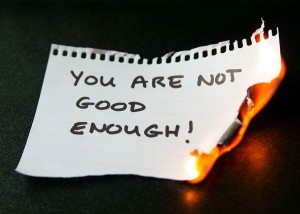Best Diet to Lose Weight? Embrace Food as a Friend Not a Foe
 “When I eat with my friends, it is a moment of real pleasure, when I really enjoy my life.” ~ Monica Bellucci
“When I eat with my friends, it is a moment of real pleasure, when I really enjoy my life.” ~ Monica Bellucci
Food should be a friend, not a foe. But perhaps you know that you should lose some weight. You know it will improve your health, your energy and your self-esteem. What’s the best diet to help you lose weight?
The best diet is not dieting at all. Don’t even think about dieting! Rather than dieting, you’ll be so much happier if you replace unhealthy food choices and habits with a healthy lifestyle that you enjoy and can sustain. As every engine needs the best fuel to perform efficiently, so the human body needs healthy food to repair and reinvigorate itself.
According to the Boston Medical Center, “45 million Americans diet each year and spend $33 billion annually on weight loss products. Yet, nearly two-thirds of Americans are overweight or obese.” It’s clear that traditional dieting isn’t working.
When someone says, “I’m going on a diet,” it implies that for a limited amount of time he or she is going to alter the way they eat. And if they go ON a diet, they will just as easily go OFF the diet and go back to their old eating habits that caused their health concerns to begin with. This on again off again approach is called Yo-Yo dieting. The weight goes on. The weight comes off (with ever increasing difficulty). And then the weight goes back on with more than before.
Instead, purposefully choose a healthy way of eating you can stick with!
According to The Journal of the American Medical Association you need to know this basic information about the food you eat. We spend so much time eating food we might as well understand what it’s doing to us. We need vitamins, minerals, good fats, and fiber to function well. And the best way to get them is by eating wholesome foods that supply this nourishment. By educating yourself on the basics of healthy eating choices, you empower yourself to create the life you desire.
Just as important as knowing what to eat is knowing how to eat. I’m not talking about how you hold your fork. What will enable you to make lasting change is to eat mindfully as you savor your food. Food is not the enemy. It’s something to be enjoyed.
A major problem is that we multitask as we eat. We’re working at the desk and stuff food in our faces so we can reach a deadline. We’re grabbing something quick because we’re too starved to take time to fix something from scratch. We’re sitting down in front of the TV mindlessly dipping our hand into the bag of chips until suddenly the bag is empty.
What are some ways you can introduce and embrace mindful eating into your life? It’s all about making conscious choices. Here are fifteen tips that you can incorporate right now…
- Remove unhealthy food from your house.
- Snack on vegetables and fruit. Baby carrots or celery sticks dipped in salsa is much healthier than chips.
- Put healthy snack choices on the counter or in clear containers in the refrigerator so they’re easy to see and grab.
- Eat slowly, chewing thoroughly as you savor each bite – paying attention to the color, texture, aroma, and flavorful seasonings.
- Unplug from technology – TV, phone, iPad – when you eat so you can think about how the food is nourishing your body and enriching your life.
- Sit at the table and reconnect with people you love as you enjoy good conversation over the meal.
- Use smaller plates and portion out food before you sit at the table to eat, which will keep you from eating too much.
- Don’t starve yourself, and make it a goal to eat several small meals throughout the day.
- Eat a moderate amount of carb-containing foods such as fruits, grains, pasta and bread as you increase the number of veggie servings you consume daily. This combination knocks down the level of the hunger hormone ghrelin, which will keep you from binging later.
- Sleep at least 7 hours each night or you’ll increase the amount of your hunger hormone ghrelin.
- Eat enough protein to stave off hunger pangs as well as keep your metabolism revved up.
- Keep a food diary for 3 to 5 days. Eat and drink what you normally consume and write it all down and see your weak areas so you can improve them.
- Compare your portion size to what’s on the nutrition label. One package may contain many servings.
- Learn nutritional information for what you eat. (You can get the total calories, grams of carbohydrate, protein, and fat from smartphone apps, computer programs, or the USDA database.)
- Identify your problem areas and make adjustments in your choices and daily routines.
Do you see several areas that you can improve on? One of the most important keys to making successful lifestyle changes is to focus on one thing at a time, taking baby steps until it become your newly ingrained habit.
Many people have found that having someone coach them and keep them accountable makes this so much easier. If you would like to work with me, in person or virtually, give me a call and we can schedule an appointment. We’ll create a plan that supports you as you achieve your desired goals. I’ve got time-tested tips that you’re going to love!




